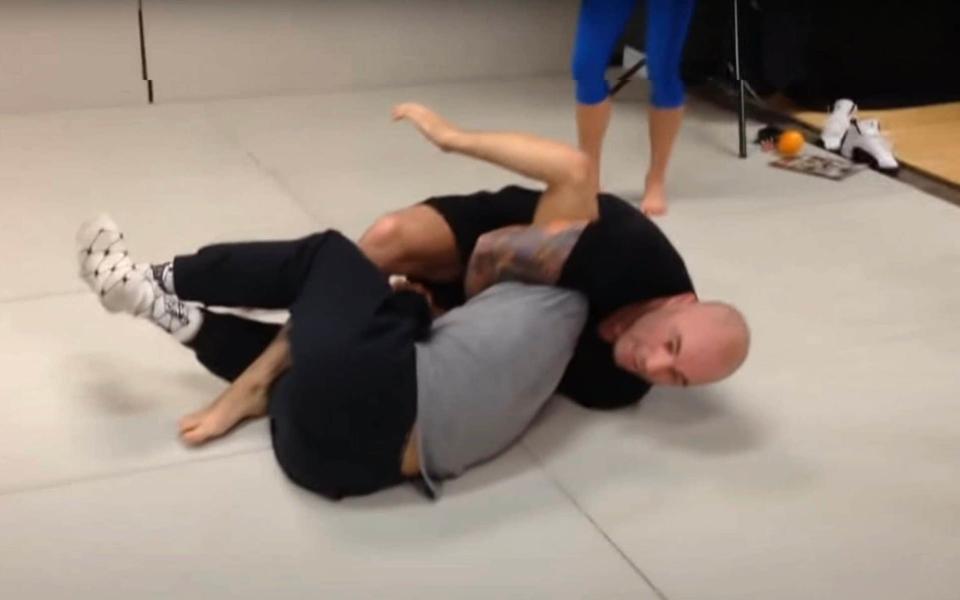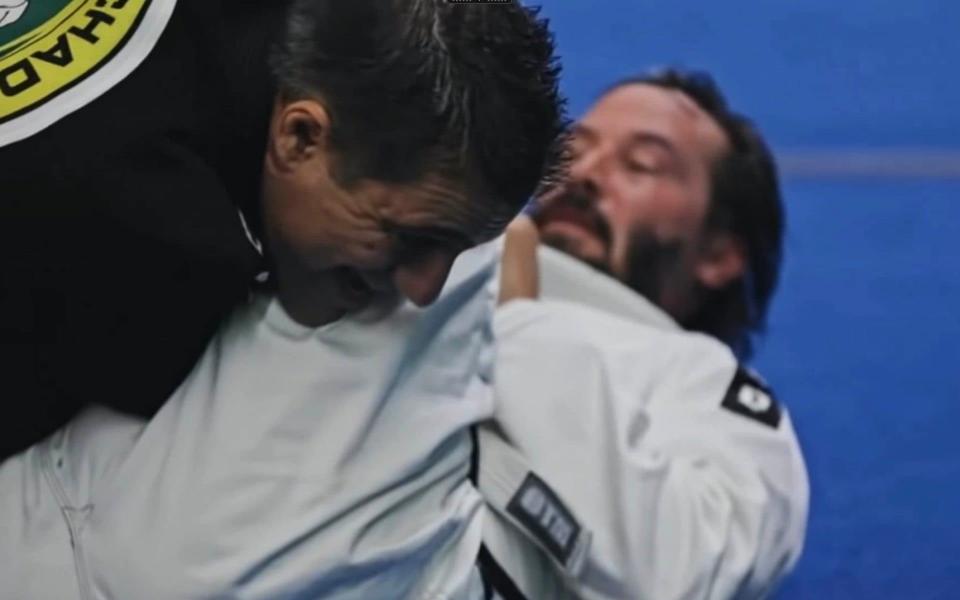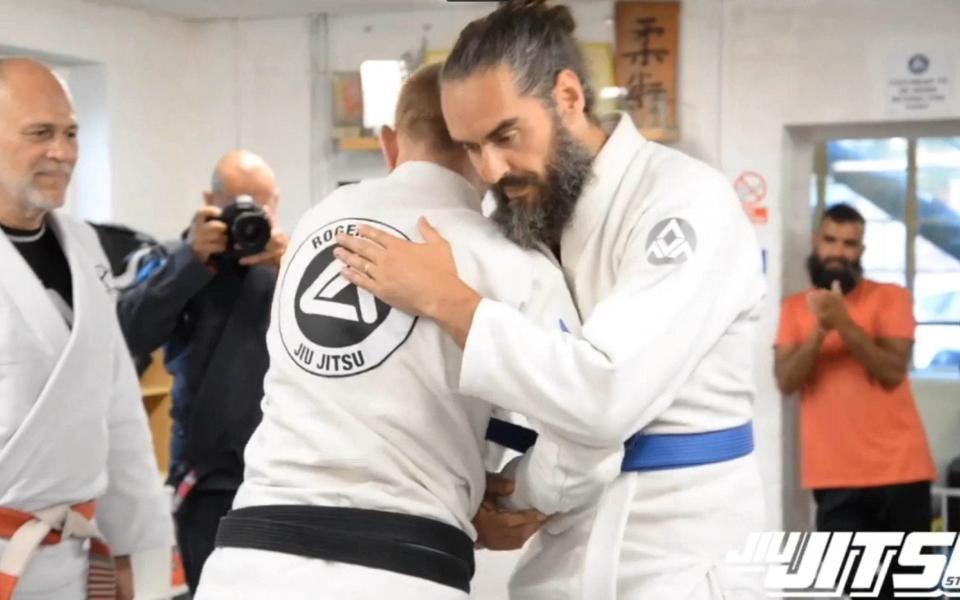Why Hollywood’s hardest men are addicted to Brazilian Jiu-Jitsu

If there was any doubt about the hardman credentials of Tom Hardy – who lent his solid frame and trademark glower to the likes of Mad Max and Bane – Hardy turned up at the Brazilian Jiu-Jitsu Open Championship on Saturday, held at Oakgrove School in Milton Keynes, and won his section of the contest.
The 45-year-old actor is a high-level blue belt and competed under his real name, Edward Hardy. He defeated sales manager Andy Leatherland by submission in the final bout. “Lining up, he was very focused,” said Leatherland about Hardy. “The intensity that he brought to his movie roles, he brought that. He didn't say a word, he didn't say anything.”
It’s not the first time that Hardy has made a surprise Jiu-Jitsu appearance. Last month he won at the REORG Open Jiu-Jitsu Championship in Wolverhampton, raising funds for military personnel, veterans and emergency service workers. And he’s certainly not the only star name to take up the grappling-based martial art. Brazilian Jiu-Jitsu seems to have become the go-to martial art for the sensitive hardmen of cinema – Keanu Reeves, Guy Ritchie, and Dave Bautista are known Jiu-Jitsu enthusiasts – as well as slightly more unassuming types, including Ashton Kutcher, Russell Brand, and Jonah Hill.
Actors doing Brazilian Jiu-Jitsu is “definitely a thing”, according to Elliot Ward from Apex Jiu-Jitsu in North London. Partly driven by the explosion in popularity of mixed martial arts, it’s little wonder it’s caught on in Hollywood. “The West Coast of the US is probably the capital of the world for Jiu-Jitsu now,” says Ward. “That’s where the best training is, where the best guys go – that’s where the money is.” Ward suggests another reason for its popularity – in Hollywood and beyond. “It’s very addictive,” he says.
The late chef and kitchen hellraiser, Anthony Bourdain, admitted to being a Brazilian Jiu-Jitsu “addict”. Indeed, the comedian, podcaster, and MMA commentator Joe Rogan – himself a black belt in Jiu-Jitsu – said that Bourdain was “obsessed” with the sport before his death.

Brazilian Jiu-Jitsu is a predominantly ground-based sport, using leverage, pressure, and joint manipulation to score submissions; it's sometimes called “human chess”. The benefits include cardio and core strength. “Until you’ve done it,” says Elliot Ward, “it’s hard to say how physically demanding grappling can be.” Ward credits Joe Rogan and UFC, the top MMA league, with sparking his own interest.
Joe Rogan himself described the appeal: “Once you start studying the movements and the various positions and the possibilities, it becomes a part of your life, it becomes... almost like your operating system.”
Tom Hardy began training in martial arts for the 2011 film, Warrior, in which he plays a nails-hard cage fighter. That seems to be a trend: actors who begin training for film roles then continue training afterwards. Keanu Reeves trained in Brazilian Jiu-Jitsu for the John Wick movies. Nic Cage apparently trained under Brazilian Jiu-Jitsu legend Royce Gracie, part of the pioneering Gracie family. In 2020, one of Nic Cage’s straight-to-DVD films was simply called Jiu-Jitsu. Rumours persist that Cage is a lifelong practitioner and black belt, though there’s some doubt among the online community – it could have just been some nifty PR to sell the film.
Ashton Kutcher, however, is best known for his dopey, Labrador-like demeanour in Dude Where’s My Car, but he’s not to be messed with on the mats. Kutcher began training in 2012 and is now a brown belt – two belt colours above Tom Hardy. Wrestler-turned-actor Dave Bautista, meanwhile, is a purple belt (between Hardy and Kutcher). He began training in 2010, after his departure from WWE.

So, what’s the appeal? “It’s the only martial art you can go 100 per cent at and have no long-term consequences,” says Elliot Ward. “If I’m boxing, training 100 per cent every day for 20 years, I end up with brain damage. Injuries are common – as with any grappling sport – but you can train a lot closer to the line by just tapping [which signals a submission] or saying stop. You can get as close to reality as it’s possible to get in a martial art. I think that’s what people find addictive. You get that adrenaline and get to go relatively hard.”
It’s sometimes called “non-violent” – because there are no strikes – though Ward says that while the martial art isn't necessarily violent, the sport version very much is. He points to the hard-hitting matches at the recent ADCC World Championship in Las Vegas. “As a layman practicing it, it doesn’t have to be violent,” says Ward. “You can take it to whatever level you like. Anyone can get something out of the sport.”
Russell Brand, who was awarded a blue belt in 2019, described the mix of ethnicities, religions and class backgrounds at training sessions. “There’s something unifying about the clear hierarchical structure of a Jiu-Jitsu class that brings people together in a safe way,” he said in a YouTube video. “Even though it’s literally for confrontation.” He joked that when he’s caught in a rear naked choke, there's little use in pleading, “Don’t you remember when I used to do Big Brother?!”
Guy Ritchie – whose barrel of cockney monkeys films scream wannabe hard man – is also a black belt. In an interview with Joe Rogan, Ritchie described how he visits the local gyms wherever he’s filming and that he enjoys the “brotherhood” of Brazilian Jiu-Jitsu. “Everyone gets found out”, said Ritchie. He revels in the feeling of going to “a new gym with new players” and getting outside the comfort zone. “You’ve got to keep outing yourself in uncomfortable spots in uncomfortable gyms,” he told Rogan.

The late chef, author and TV adventurer Anthony Bourdain described a similar thing. A well-known chain-smoker, former drug user, and hedonist, he was unfit into his 50s. Bourdain's wife, a martial arts competitor, got him involved in a training session “in the hope it would be hilariously funny and pathetic”.
Bourdain told Men’s Health how he found the initial session “very strategically and intellectually intriguing.” He continued: “I started taking classes and these days I mostly train open mat, which means I show up at academies all over the world, walk in the door like everybody else, get in my gear, and do five-minute rounds with anybody who wants to fight.” Bourdain insisted on training wherever he went during the making of his Parts Unknown series, causing some headaches for his producers.
Bourdain admitted that he was a perennial loser on the mats, that losing was inevitable – “Every second, every minute I can prevent that from happening is a victory to me,” he wrote on his blog – though he won a gold medal at an International Brazilian Jiu-Jitsu Federation event in 2016.
There may be a deeper reason for attracting celebrities, particularly those – such as Anthony Bourdain, Russell Brand, and Tom Hardy – who have battled personal demons or addictions. “Jiu-Jitsu has all the basic things that humans need,” says Elliot Ward. “It’s got physical contact, a community, learning, and exercise. It has all these facets, which is why people fall in love with it. You get loads of ex-addicts falling in love with it because it fills that void. It’s popular in acting circles. And a good percentage will have had some sort of addiction problems in the past – the ones who really fall in love with it have had some sort of battle – whether it’s mental health, or addiction in the past.”
For some, it could be a new way of life. “It’s swapping one addiction for another – but it’s a positive one,” says Ward.
Anthony Bourdain, who died by suicide in 2018, once revealed the big lesson Jiu-Jitsu had taught him. “Humility,” he said. “I've had my ass kicked everywhere, but it engages the mind and pushes the body to extremes.”

 Yahoo News
Yahoo News 
